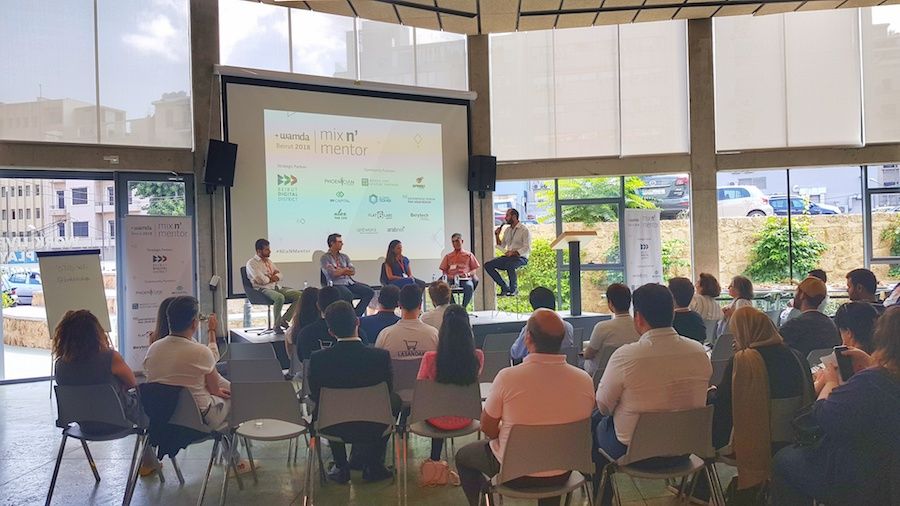What does Lebanon need to foster real innovation? Insights from Mix N’ Mentor Beirut

Since the launch of Beirut Digital District (BDD) in 2012, a startup hub was created for Lebanese entrepreneurs to connect, network and collaborate. Gradually, this community of digital and creative startups expanded its services to startups, individuals, corporations, incubators/accelerations and funds.
It soon became the place for entrepreneurs and ecosystem stakeholders to meet, network, work and collaborate. With the launch of Circular 331 in 2013, a $400 million fund launched by Banque Du Liban (BDL), access to funds was no longer a big issue. In a short period of time, this small startup ecosystem began to offer several services to help entrepreneurs succeed - talent, funds, community, support and mentorship - which begs the question: Where are all the Lebanese startups?
On 14 September, during Wamda’s Mix N’ Mentor event in BDD, Wamda’s partner and investment principal Walid Faza kicked off a panel on the Lebanese ecosystem by addressing the issue of the low number of startups in the country. The day also featured mentorship sessions on customer acquisition, fundraising and starting up as well as three workshops in parallel on user interface/user experience (UI/UX) design, cashflow management and one-on-one pitching with Wamda.
"Where are the Lebanese startups?", Faza asked each of his panelists Fadi Bizri, partner at B&Y Venture Partners, Bijan Azad, associate professor at Olayan School of Business, American University of Beirut, Sami Abou Saab, chief executive officer at accelerator Speed@BDD and Corine Kiame, investment manager at IM Capital.
“You need to build a lot at an early stage. We don’t have pre-accelerators but universities are jumping on board,” said Abou Saab, indicating that giving students access to the right entrepreneurship knowledge and skills will help increase the number of startups in the country. “About 70 per cent of graduates leave the country. We are a 10-year-old ecosystem, Circular 331 came in 2013 and we don’t have enough failure stories.”
Abou Saab strongly believes in the role of research and development centres (R&D) in creating new ideas. These centres can build distinctive products and patents and they attract talent, he added. Bizri agreed. “We need more R&D centres from universities and outside. R&D will create new industries and the jobs of tomorrow. Entrepreneurship creates the jobs of today.”
Why is innovation not happening here?
The country’s political situation, lack of proper infrastructure and relatively small market are all factors that contribute to the brain drain of future entrepreneurs, suggested Faza. Perhaps, it is a reason why real innovation is not happening from within the ecosystem. However, things are improving, albeit slowly. One example is the internet. “We have fibre optic here and things are picking up. [But] there’s the lack of governance and pollution,” said Bizri.
In order for Lebanon to foster real innovation, more corporations must launch their own venture capital funds (CVC), according to Kiame.
“If we have a CVC for a car company dedicating $5-10 million to invest in new ideas, this is when you will start seeing innovations, deals and exits,” she said. “CVC is still early and most of the companies are family-owned but the third generation [of CEOs] are taking over and looking into entrepreneurship.”
Some companies, instead of launching their own funds, are collaborating with accelerators. Bizri gave the example of British multinational bank Barclays, which partnered with global accelerator Techstars to launch Barclays Accelerator.
Lebanon might still have a long way to go to achieve ease of business, but experts believe success stories and exits will eventually happen.
"For the ecosystem to see some results, we have to wait at least seven years from the start of Circular 331 and that's 2020/2021," concluded Abou Saab.
It might be a tough ride but things are on the right track.


